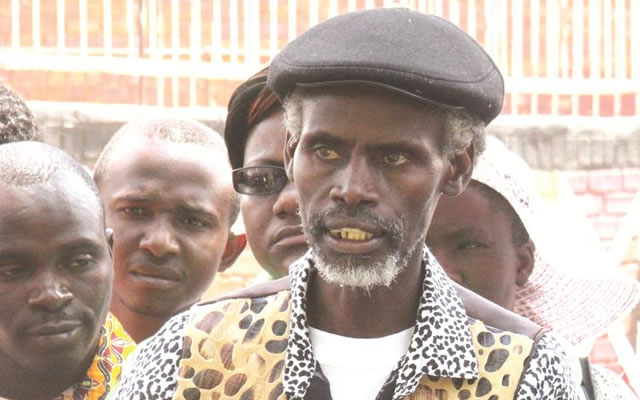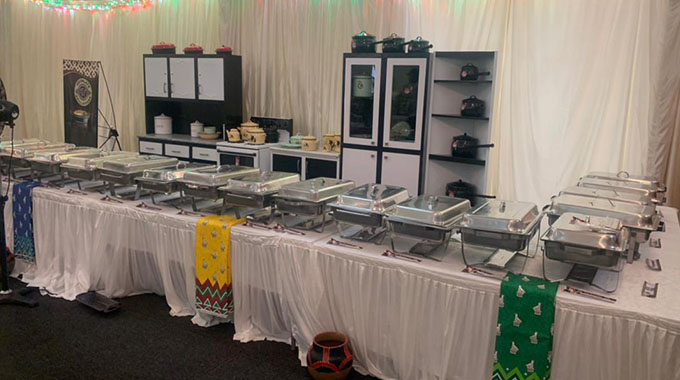Govt urged to commission films that capture Zimbabwe’s history

Bongani Ndlovu, Showbiz Correspondent
AS the nation commemorates the 17th anniversary of the death of Vice President Joshua Mqabuko kaNyongolo Nkomo today, a veteran film maker Cont Mhlanga has called for the government to commission films that capture the history of Zimbabwe.
This call is in line with the resolution by war veterans who in April said the nation should invest in documenting the history and stories of national heroes through film.
Mhlanga said the nation was underutilizing the film industry to capture historical memory such as the life of Dr Nkomo.
“The film industry in Zimbabwe is under exploited and underutilized particularly in terms of capturing national memory. We need a deliberate policy and strategy that will say; how do we capture national memory. Then it’ll be a major purpose to invest in historical content because it is important to capture national memory,” said Mhlanga.
He bemoaned that even the celebrations of today are not being captured on film for future generations.
“Even the events such as the July 1 commemorations aren’t being documented, let alone what Joshua Nkomo did to liberate the country. So we’re in a dilemma which basically means we’re not creating foot prints as a people of the paths that we passed through,” said Mhlanga.
Mhlanga said in other countries governments heavily invest in film, to tell their versions of history.
“The movie Rambo is an American depiction of the Vietnam war. They came up with their own heroes and through their eyes. What are we doing to rewrite pre-colonial history about us, absolutely nothing. We want to be going back to libraries that have our history through the white man’s perspective,” said Mhlanga.
He said after recording footage with Welshman Mabhena and Enos Nkala the two died a month later and he realised that the country’s history was slowly being lost as those who have the knowledge are dying with it.
“I was shocked after filming six hours with Welshman Mabhena and we had done nine hours with Enos Nkala and a month later they died. That means such people who have national memory of our history are passing away with it. What is disappointing is that we’re still documenting using pen and paper. People don’t want to read texts saying Nkala said, but want to see it with visuals,” said Mhlanga.
“What’s saddening is when we bury a hero at the Heroes or Provincial acres; the footage of them that’s used is nothing but current speeches. There’s no one footage of the person from the past or anything to celebrate whatever we’re honouring them of what they did,”
He said he hoped that with the ongoing digitisation programme there would be channels dedicated at telling the country’s history. “The challenge is that we had one channel that tried to fit everything all at one channel. Now we’re digitising, we strongly need to dedicate one channel to history, geography and heritage. Once you a history channel then you can have many angles to the Nkomo story. There are people who were with Nkomo and those can tell you different stories about him,” said Mhlanga.
He said although the idea was noble they should be a holistic approach to document the history of the nation.
“What is important to know is why we are telling these stories. Are Zimbabweans interested in our identities? We have three historical periods, the first one is before the white men came to the country, the second one is when they were in the country and the last is after our independence.
“If we narrow down the history just to tell people about our elder statesmen only, we shall have not done justice to it.
“We don’t need to narrow it down to one character; we need to capture a whole period of history such as 30 to 40 years before 1893. Then after 1893 to 1980 we want to tell that history because there are many aspects of that history that can make us understand where we are today,” said Mhlanga.
“If we don’t do that we’ll not know why we are making the films and we lose our way.”
He said the challenge with Zimbabwe is that the country does not invest in documenting feats in history through film.
“We don’t document, and what we see today will be history in the next 50 years. If you ask someone if they have footage of how Shangani dam is being built, no one has. That means 50 years from now anyone who wants to write the history of that dam there’s no record of that,” said Mhlanga.
“Yet the white people produced footage of how Kariba Dam was built.”











Comments